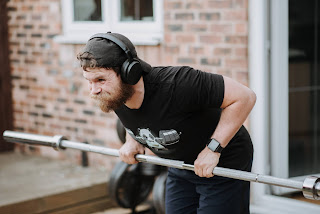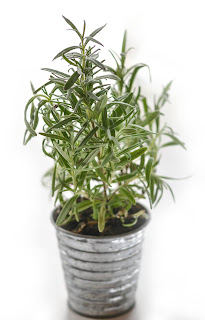The secret of treating muscle weakness with herbs
Muscle weakness must be treated if it occurs for health reasons such as muscle inflammation and nerve damage or even as a result of other reasons such as smoking, alcohol consumption or insomnia and some sleep disturbances. Follow the article to learn about types of herbal muscle weakness treatments.
What is muscle weakness?
Muscle weakness can occur naturally at some point, which takes a short time and goes away when resting, whether the muscle weakness is in its normal state caused by intense exertion or during the recovery period, for example, in the case of recovery from an illness.
But it is the abnormal muscle weakness that causes problems for the muscles of the body themselves, as they become weak and damaged, in which case they cannot build up or give them the strength they need to perform their daily tasks.
This pathological muscle weakness results from a group of diseases that weaken the skeletal muscles in the body, which can lead to impaired movement or can manifest as skeletal abnormalities, where muscle weakness can result from a defect in the muscles themselves. The brain or spinal cord, where the size of the muscles becomes smaller and leads to atrophy.. We will learn about the herbal treatment for muscle weakness, as well as its causes and symptoms.
Types of muscle weakness:
First muscle weakness: First muscle weakness is the type of muscle weakness in which the muscles lose the ability to perform their functions.
Muscle fatigue: This type of muscle fatigue occurs when you feel tired after using a muscle.
Muscle fatigue: In the case of muscle fatigue, the muscle is normal at the beginning of its use until it gets tired quickly when exerting and this fatigue disappears after a long period.
How to diagnose muscle weakness:
To treat muscle weakness, it must be done by a doctor to diagnose the patient's condition so that he can help him. Diagnostic method is as follows:
- Clinical examination in which a doctor attempts to diagnose a muscle condition by direct observation and asks the patient about the history of the affected muscles and whether they have other pain associated with muscle weakness.
- The second step is to have blood tests done to make sure there is no infection or other diseases.
- As for the magnetic resonance image, it is the third step in the diagnosis, in order to reveal the internal structure of the body, such as tendons, ligaments, and others.
- Finally, the diagnosis ends with "muscle mapping" to measure neuromuscular activity.
Herbal treatment for muscle weakness
You can get rid of this muscle pain and weakness and turn to nature's support for healing, as herbal remedies provide you with support and recovery.
To strengthen the nerves and muscles
herbs. Among these medicinal plants we mention:
Chamomile: The chamomile plant can also be used to support and support weak muscles. It can be drunk directly as a hot drink to treat muscle spasms, or even chamomile oil is applied topically to the affected area.
Oats: The oats plant when eaten and used with the diet helps in treating muscle weakness
with herbs and strengthening them significantly, thanks to the ingredients that oats contain in its composition.
Rosemary: The rosemary plant supports muscle building at home, as it treats infections,
increases strength, and builds muscles. An amount of rosemary can be added to boiling water and then drunk.
Ginseng: Ginseng relieves fatigue and treats muscle weakness naturally and safely.
Treating muscle weakness with diet:
As for how to treat muscle weakness with diet, they are as follows:
water :
Drinking water supports the treatment of weak nerves and muscles because it keeps them strong, healthy, and functioning efficiently.
Eat fresh vegetables and fruits:
By including fresh vegetables and fruits in your diet, you will ensure strong muscles and improve your health as well as your health.
White bee honey and licorice milk:
You can make this magical mixture to support the strengthening of nerves and muscles, by adding two tablespoons of honey with one tablespoon of licorice to a glass of milk to drink daily.
pineapple
Pineapple fruits help promote the health of the muscles of the body because this fruit contains vitamins and minerals.
egg :
Eggs contain in their composition a large amount of protein in addition to the "9 essential amino acids" in addition to "vitamin D", so it is one of the most important foods that support muscle weakness.
Fish:
Fish and tuna in particular improve the health of the body's muscles, because they contain protein, omega-3 fatty acids, and a little bit of fat, which promote muscle health.
Red meat :
Red meat is mainly considered to help build muscle along with the amount of protein it contains, but a healthy diet must be followed with the basic building blocks needed by the body from "calcium, iron and vitamin B".
chicken:
Chicken is also an important source of protein and useful for restoring weak muscles and also for supporting muscle health without gaining weight.
healthy fats:
Healthy fats support muscle and help treat weakness and help build it properly. These healthy fats are found in "fish, including salmon, tuna, walnuts, flaxseeds, avocados, and leafy greens like spinach and watercress."
Causes of muscle weakness:
Healthy causes of muscle weakness:
- For pregnant women: As during pregnancy, women become anemic and the percentage of “steroids” increases, which weakens the muscles of the body, in addition to the weight of the woman during this period.
- Aging: Getting older and entering the aging period causes the muscles to weaken in terms of strength and size, but with exercise the muscles can be protected to some extent.
- Weight gain: Obesity and unwillingness to treat the problem is one of the most important causes of muscle weakness.
- Psychological diseases: These are diseases in which the brain affects and affects the muscles as well. Medicines that treat diseases such as "depression".
- Chronic diseases: These are diseases that lead to a lack of blood supply with the nutrients it needs, such as “anemia, heart failure, kidney disease, chronic lung, and peripheral artery disease.”
- Inflammation of the muscles: Of course, muscle inflammation affects the health and strength of the muscles and increases their weakness, so it must be treated immediately after infection and not underestimated.
- Nerve damage: Nerve damage occurs as a result of injury, which leads to muscle bleeding and inflammation, which leads to weakness of the affected muscles later.
- Taking certain medications: The use of some medications can lead to muscle weakness, and these medications include “antibiotics, non-steroidal anti-inflammatory drugs, medications to lower bad cholesterol, and steroids.”
Other causes of muscle wasting:
- Severe muscle fatigue due to violent sports or even exposure to severe blows.
- Taking certain types of medications can cause muscle atrophy and weakness.
- Constant inactivity and without physical exertion, because muscle fibers then turn into fat, which further weakens muscle mass.
- Addiction to drinking alcohol and smoking of all kinds.
- Insomnia and sleep disturbances lead to general muscle pain, resulting in weakness when this condition persists.
- One of the causes of muscle weakness is a lack of "vitamin D" in the body, which causes muscle weakness.
Through the lines of this topic, we have provided you with adequate information on how to treat muscle weakness with herbs and the causes of infection to prevent it, as well as how to treat this weakness with natural herbal remedies.








Comments
Post a Comment